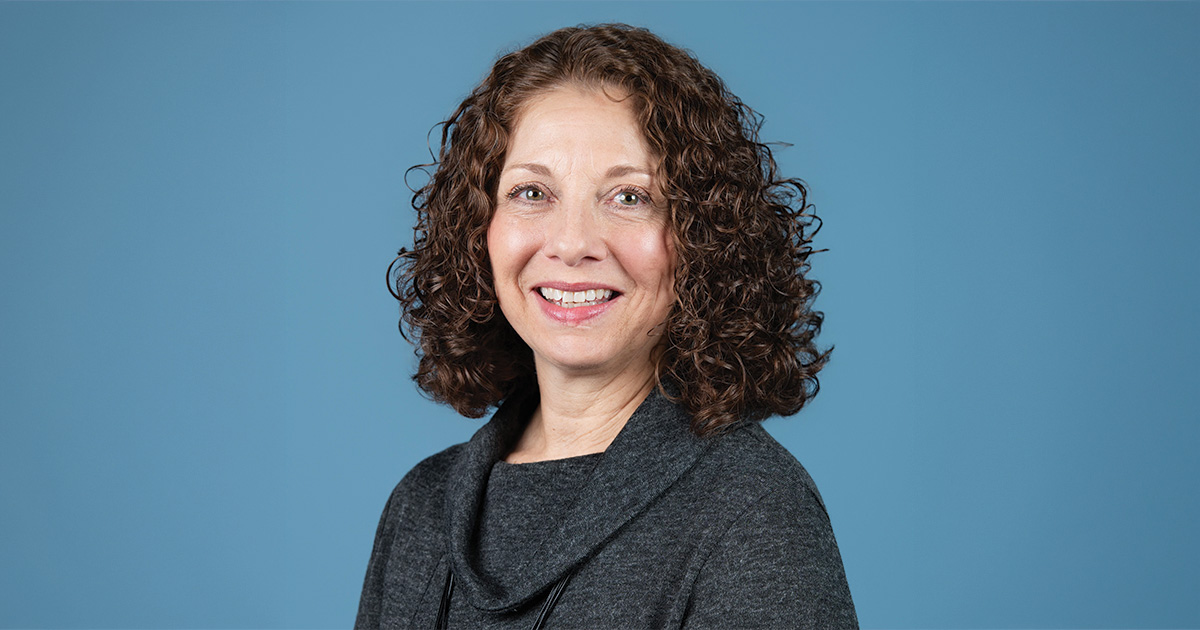Hadassah’s Prof. Michal Lotem, a trailblazer in melanoma research and healing, is treating her patients with a personalized protocol that only a handful of oncology centers around the globe are able to offer.
When her patients come to her with Stage IV metastatic melanoma, where standard treatments have failed, Prof. Lotem uses a cutting-edge immunotherapy protocol called adoptive cell therapy (ACT). The treatment involves extracting immune cells from a patient’s tumor and expanding their number into the millions to make them more powerful cancer killers. They are then re-injected into the patient, who is now armed to fight the disease with a greatly enhanced immune system.
Having trained at the National Cancer Institute in Bethesda, Md., Prof. Lotem, head of Hadassah’s Center for Melanoma and Cancer Immunotherapy, tweaks the protocol based on her years of experience and the patient’s disease pattern. In this way, she saves lives when the prognosis is poor. As she explains: “We have to take into account each person’s unique mutation landscape because each person’s cancer, though it exhibits common attributes, has its own profile.”
Consider Esther, for example. A 62-year-old oncology nurse, Esther was diagnosed with melanoma in 2012; 14 months later, despite treatment, her cancer had metastasized to her chest wall. Prof. Lotem treated her with a personalized vaccine, using her own tumor cells that had been enhanced in culture with a drug called Keytruda. In January 2017, she was completely free of metastatic melanoma. Moshe, diagnosed in August 2013 with melanoma, did not respond to traditional treatments. Prof. Lotem treated him with ACT and about three and a half years later, in January 2017, he was free of cancer.
Hannah had a unique variant of melanoma. Prof. Lotem recalls that Hannah’s cancer “looked like someone had put black ink all over her leg and thigh. The typical survival for this sort of metastatic melanoma is one and a half years. Fast forward 15 years and, today, Hannah is alive and well. As Prof. Lotem expresses: “My belief is that Hannah is not only alive, but she is actually cured--by all medical standards--since medical protocol is to declare a patient cured when free from cancer for 10 years.”
Although one of her American patients whose life she saved believes Prof. Lotem is way too humble, she has a different perspective: “There is a lot of hubris and pride in the field of medicine,” she says. “But I feel that the credit should not be given to doctors. If we are lucky to be physicians, or to be researchers--I am lucky twice--we can witness the knowledge of the human race and witness how it can save lives. I am so lucky to be a doctor at a time when we have effective drugs. I am lucky to be able to sit in front of my patients and see their happiness instead of their misery.”
Prof. Lotem also does not believe that doctors should tell patients they have x number of months to live--or as she calls it, “practice prophecy.” She focuses rather on trying to help them live. To that end, Prof. Lotem continues to do research to find ever more powerful ways to boost the immune response of the enhanced immune cells. Last year, the Hadassah Medical Organization was awarded a three-year, $337,500 grant from the Washington-based Melanoma Research Alliance for developing a protein that will make immune cells better cancer killers.
Prof. Lotem, who already knew she would become a doctor when she was only five years old, has been doing immunotherapy for 20 years. She was a pioneer in the field when it was not yet a mode of treatment most medical professionals were willing to take seriously. She and her team at HMO began by first administering personalized vaccines to their advanced-stage melanoma patients, derived from the patient’s own tumor cells, following surgery. Then came the next generation of vaccines, made with genetically engineered tumor lines. As Prof. Lotem explains, the HMO vaccine was designed as a preventive treatment--as a memory of the disease for the immune system so it could recognize the enemy and, therefore, prevent a recurrence.
Treatment strategy then switched to the creation of a vaccine made from immune system cells themselves, fortified to fight an enemy they already knew. HMO began taking part in early clinical trials with biological treatments, aimed at enhancing the immune system. It was then, Prof. Lotem explains, that they realized that they could achieve a synergistic effect by combining biologic treatment with her vaccine. “The immune system is a complex system,” she says, “so you have to approach treatment in a complex way.”
As Prof. Lotem brings out, “the world is now convinced that immunotherapy is the way to go.” She believes that immunotherapy “will become the main platform for treating melanoma as well as other types of cancer.”



.svg)





